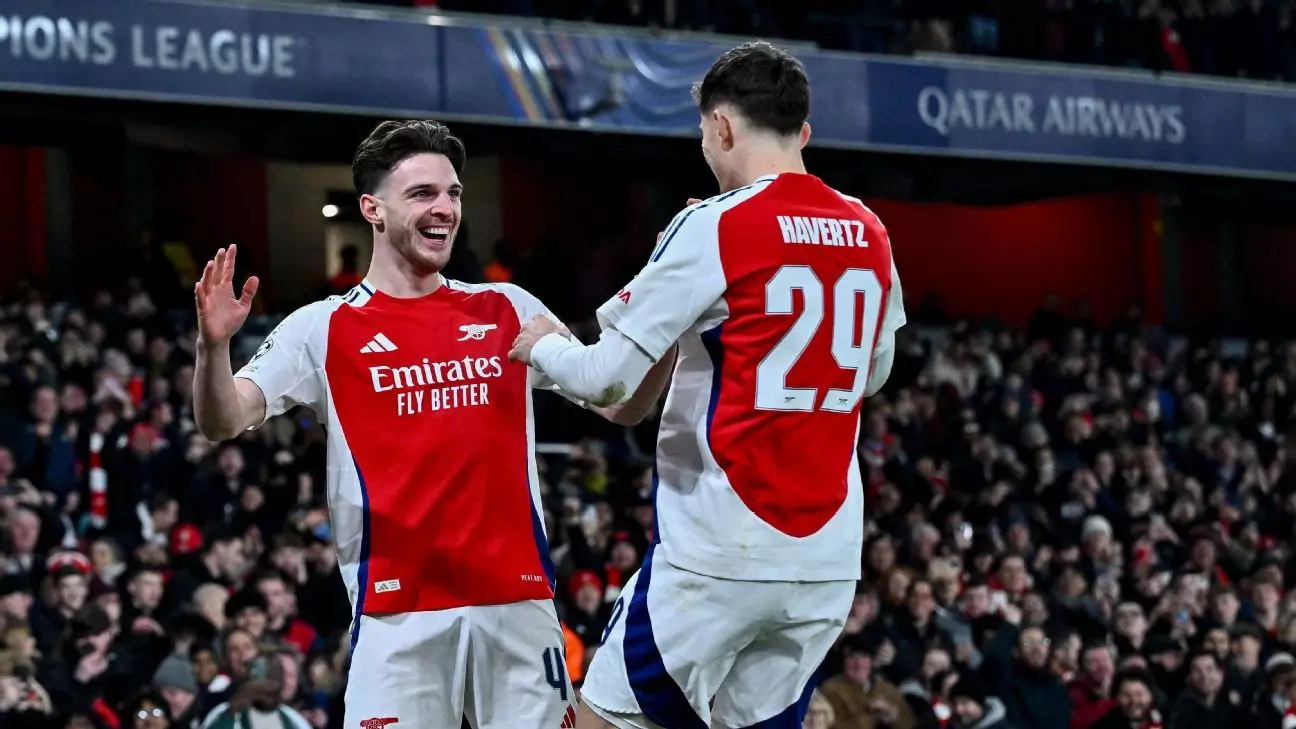The recent changes to the UEFA Champions League format have stirred mixed feelings among fans and players alike; however, for Arsenal, the revised system appears to be beneficial. Following a commanding 3-0 win against Dinamo Zagreb, Declan Rice expressed a surprisingly positive sentiment about the new format. Initially causing some confusion, the 36-team group stage replaces the traditional norm of eight groups with four teams each, and players seem intrigued by the change. As Rice noted, “Playing big teams and different opposition has been really interesting,” signaling a fresh approach to elite European football.
Arsenal’s commanding performance positioned them strongly, virtually securing a top-eight finish. With a total of 16 points accumulated, the Gunners find themselves in third place and can start contemplating their advancement into the knockout rounds. Manager Mikel Arteta, although cautious, acknowledged the team’s strong standing without overtly announcing their progression. The gaffer remarked, “I know we’re in a really strong position,” reflecting both optimism and the strategic mindset that defines his coaching approach.
This attitude is echoed in the team’s robust performance statistics. They showcased their defensive mettle by maintaining a clean sheet, not conceding any shots on target during the match, which Arteta praised as further evidence of a well-rounded squad. With players like Rice and Kai Havertz significantly contributing to the scoreboard, the focus turns not just on winning but on creating a cohesive unit that thrives under pressure.
Arsenal’s attacking prowess was evident as they hit the net three times, with Rice and Havertz notably leading the charge. The inclusion of Havertz, who took his season’s tally to 14 goals, along with Martin Ødegaard securing his first goal since November exemplifies the strength in depth within Arsenal’s ranks. Arteta’s management has allowed for player rotation, which proved effective as those who typically have less game time stepped up admirably.
Arteta’s rotations have been designed not just for the Champions League but to preserve the squad’s energy levels ahead of a demanding season. With the FA Cup on the horizon—an important tournament in its own right—the decision to manage keys players versus squad members becomes strategic as the coach evaluates which individuals are most effective in various competitions.
The prospect of avoiding a Champions League playoff carries implications beyond just the immediate success on the field; it could provide Arsenal with a much-needed winter break. Arteta hinted at a recharging opportunity, enabling players to reset mentally and physically as they enter the second half of the season. This alignment of schedules allows for recuperation and targeted training, which could be crucial for maintaining a competitive edge in multiple tournaments.
As Arsenal confidently strides into the next phase of the Champions League, the implications of the new format along with their adaptive strategies will undoubtedly continue to unfold. The potential benefits of this approach could cement Arsenal’s status as a prominent contender in European football once again, allowing them to aim not just for victories, but for a long-awaited Champions League trophy.

